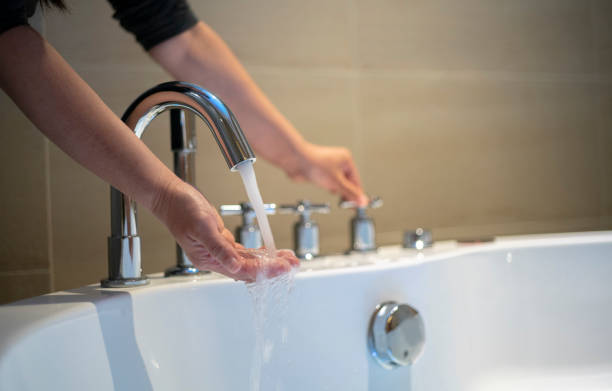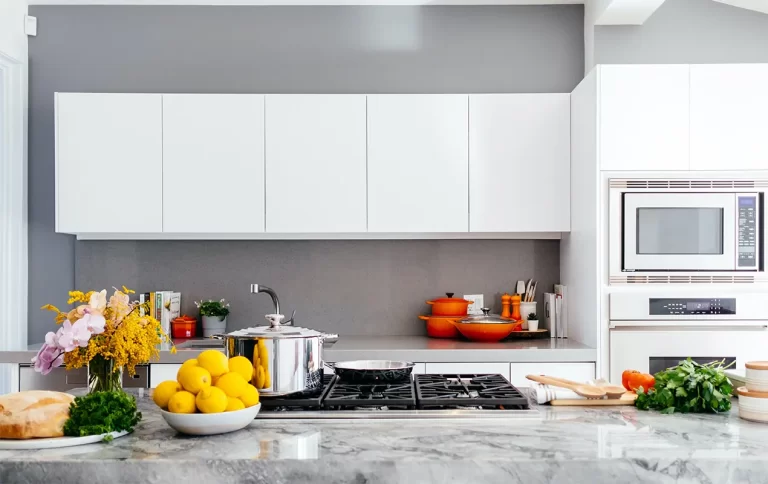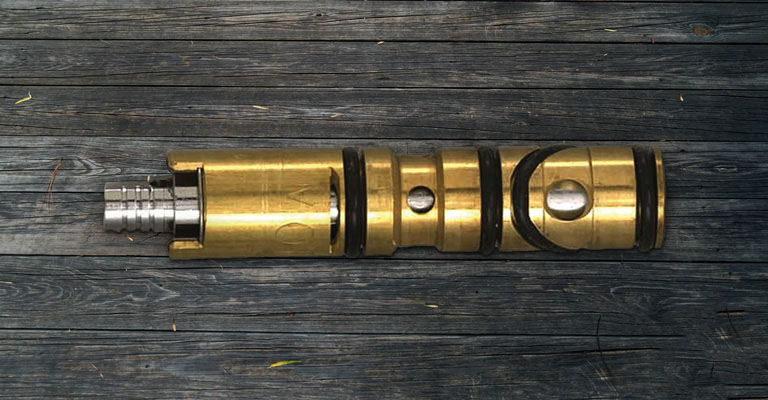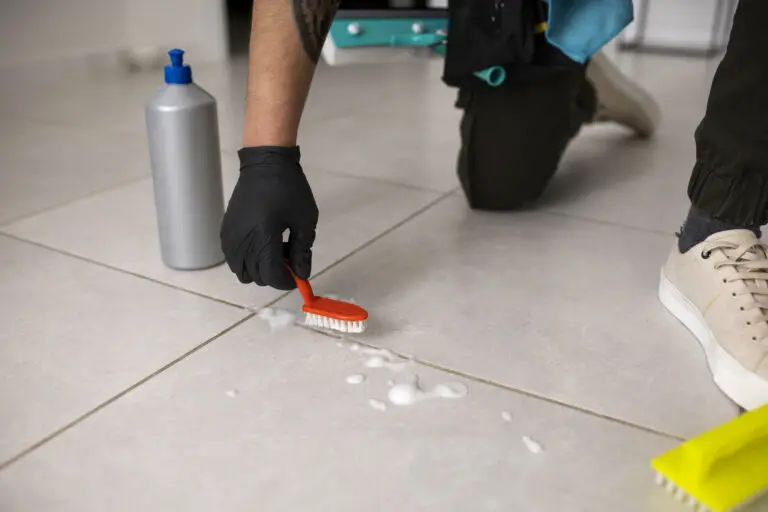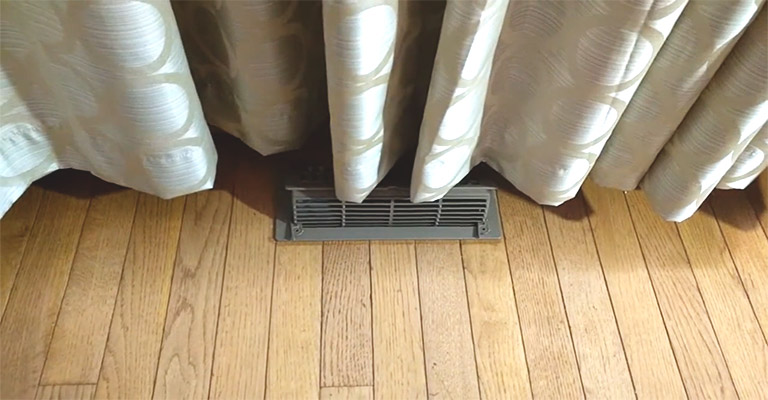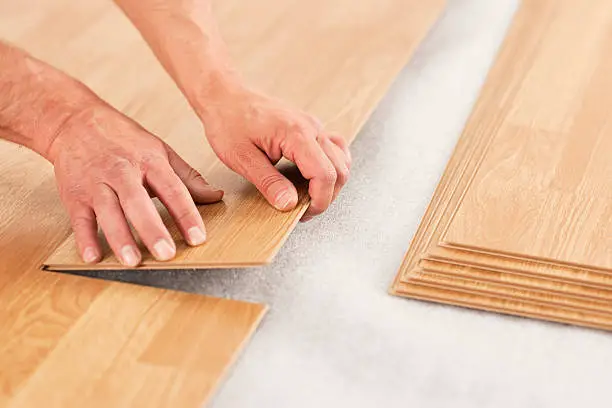Do You Need a Dehumidifier in a Finished Basement?
Want to get rid of mold growth in the basement? Need to improve the air quality of your home? Then a dehumidifier in your finished basement is a must.
There are many benefits of having a dehumidifier in a finished basement. It helps prevent mold and mildew, which can be a problem in humid climates.
They also help protect your furniture, flooring, walls and other belongings from damage.
Do You Need a Dehumidifier in a Finished Basement?
In spaces that can only support a limited amount of moisture, such as basements and crawl spaces, dryers will be an optimal solution. Dehumidifiers are ideal when you’re dealing with excess moisture.
A basement dehumidifier helps maintain an ideal indoor relative humidity (RH) level in the space.
An RH level in a basement of 30% can make the space much more comfortable for you and your family. One way to control the relative humidity is by using a dehumidifier. A dehumidifier can remove excess water vapour from the air and maintain an ideal indoor RH level.
A dehumidifier helps –
Defending the Germs
In a finished basement, it is advised to keep the humidity level below 50%. High humidity ensures mold, mildew, or other harmful germs/bacteria get a suitable place to grow up. And, for this, to maintain this level, you need a humidifier.
Eliminating Smells/Mark
Because of humidity, dirty smells occur and create watermarks on the base. To solve the smells and spots, a dehumidifier is a must.
Best Place in the Basement to Put a Dehumidifier in 2 Story House
To find the best place for fixing your dehumidifier in 2 story houses, you need to check out the following parameters.
Temperature
Measure the temperatures of both floors. Find the coldest place. A dehumidifier should be set on the floor having the lowest temperature.
Moisture
There should be some places in your home where the moisture is at the highest level. For example, mildew smell from the laundry room is very common. To get rid of the mildew smell from the laundry room you can place the dehumidifier there.
Air Flow
Set your dehumidifier in a place where fresh air can easily flow. Avoid places full of obstacles. If the dehumidifier gets fresh air frequently, it will be able to eliminate humidity so fast.
Electricity
As the machine runs on electricity, keep the machine near a power source but not too near to the electric sources to prevent any damage.
Dust Source
The place with no dust bin or source is better for the dehumidifier. Otherwise, its filter will be damaged.
Center Point of the Home
Try to place the dehumidifier in the central zone of your house. So, you will be able to get the highest coverage of dehumidification.
Will a Dehumidifier in the Basement Help the Whole House?
If you ask the question ‘Is a basement dehumidifier useful?’. Then our answer is, ‘yes. Different people prefer the different dehumidifier places. But the dehumidifier in your basement can surely help the whole house. Just have a look at the following reasons.
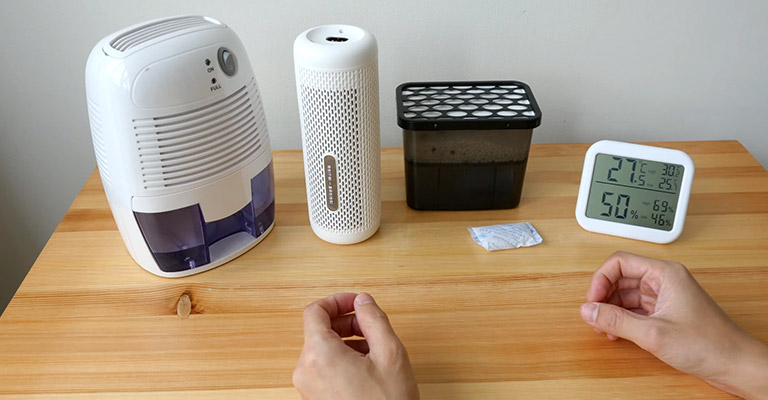
Moisture Level in Basement
Have you noticed that your basement bears a higher level of moisture than any place in your home? Basement means the lowest floor and its low-temperature affects the whole house. So, the basement is the perfect zone for eliminating humidity levels and low temperatures.
Dampness in Underground
Dampness mainly affects the basement areas. For the water leaks and dampness, the whole foundation of your home can be damaged. Besides, mold, mildew, harmful germs, and bacteria will grow up and cause diseases. So, keep the dehumidifier to remove this dampness and secure yourself and your home foundation.
Water Spots
The basement usually bears more water spots than any of your places. Besides, there are always smells of mustiness. So, a dehumidifier in the basement is a must.
No Heat or Sunlight
Basement in a space that doesn’t have enough heat or sunlight. So, it can be unhygienic and unsuitable for living. If there is a dehumidifier, you can keep all your basement kinds of stuff dry.
How Often to Run Dehumidifier in Basement?
The working hour of this dehumidifier depends on following points.
Relative Humidity
If your basement bears 50 to 60% of relative humidity (an average level), you should run your dehumidifier for nearly 10 to 12 hours a day.
Basement Smelling Damp and Wet
If you find your basement looking smelling damp, it is the right time to bring a dehumidifier.
Creep in the walls
When your walls will start creeping, you need to minimize the humidity level of the basement. Besides, immediately take the stuff if you find mold spores and dirt spots on the basement floor.
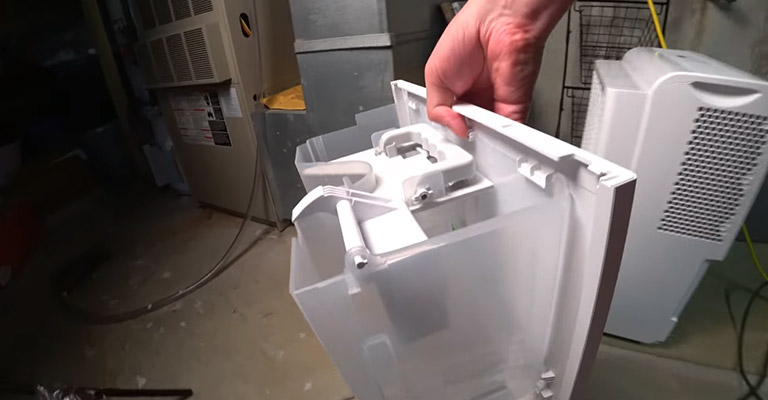
Should You Run a Dehumidifier in the Basement All the Time?
Never. It is not necessary to run the machine all the time. If your moisture level of the basement goes above 50%, then you will have to run a dehumidifier. Running this machine for so long will cause health problems and huge electric bills.
Is It OK to Leave a Dehumidifier on All Night?
There is no harm in using a dehumidifier all night. But this machine causes noise, vibration. So, it may affect your sound sleeping. Besides, as it runs on electricity, it can cause any danger when you are not awake.
Will Putting Dehumidifiers in the Basement Use a Lot of Electricity?
No. it is more energy-efficient than a genuine water heater, an air conditioner, or a hair drier! An average size dehumidifier uses 700W of energy, around £0.04 per hour. And that is less than a single computer.
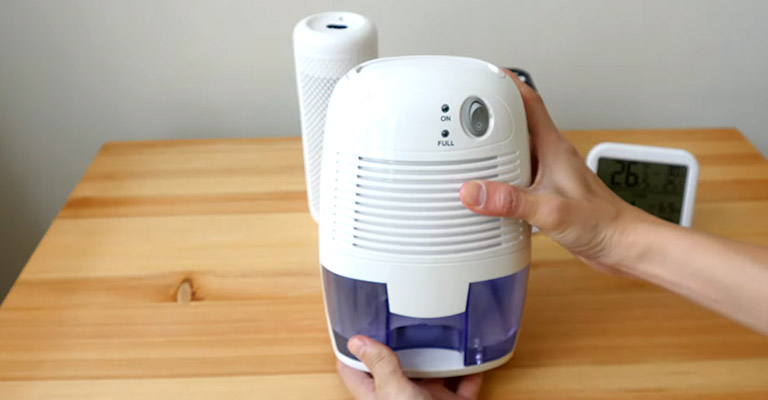
How Much Water Should a Dehumidifier in the Basement Collect in a Day?
According to the user guides, the highest capacity of a dehumidifier is about 10 to 20 liters. But from practical experience, we know it can go up to 50 liters by a larger one.
FAQ
Q: How to keep my basement dry without any dehumidifier?
Ans: To keep your basement dry and clean, use portable or installed ventilation fans and keep the windows open. Allow sunlight and air to come in.
Q: What size of dehumidifier is needed for my basement?
Ans: You can purchase a 14-pint capacity dehumidifier for your 1000-square-foot basement. For a 500-square-foot space, use the unit that holds 12 pints of water.
Conclusion
Basement dehumidifiers are vital tools in ensuring that excessive humidity doesn’t damage your finished basement or compromise your indoor air quality. Portable dehumidifiers can effectively control basement moisture, combat the musty smell often associated with excess dampness, and deter dust mites that thrive in humid environments. They can serve both as a protective measure for your basement and as a way to promote a healthier living environment in your home.
Strategically placing a portable dehumidifier near areas prone to dampness, such as basement windows and floor drains, will significantly boost your basement’s humidity control. Furthermore, reducing excessive moisture minimizes the risk of mold and mildew growth, common culprits behind the unwelcome musty smell. By integrating these appliances into your living space, you’re investing in a long-term solution for maintaining the integrity and comfort of your finished basement.
Ultimately, the choice to invest in a dehumidifier for your finished basement should be guided by the need to protect your investment and enhance the overall living conditions in your home. With a suitable dehumidifier, you can regulate the indoor air quality, manage basement moisture, and promote a comfortable, safe environment for your family. It’s a small step towards making a big difference in your home’s overall comfort and well-being.

